#New Testament Theology
Text
yeah we might be brothers in christ but so were cain and abel so shut the fuck up before i decide to find a rock about it
#postscript;#if you try to tell me cain and abel were not brothers in christ shut up pls#i've studied theology for nearly a decade. i know more than you.#christ's harrowing of hell exists to retroactively turn all of humanity even before his existence into ''brothers'' in christ#because it is not a literal term it is an evangelist term. bc christianity in all denominations is evangelistic in nature#not being a christian is 1. a moral incorrect choice according to them and#2. not actually possible. everyone is judged as a christian everyone is fundamentally supposed to be christian#calling someone a brother in christ is just calling them christian.#so ergo according to doctrine cain and abel are in fact brothers in christ#but#and this is far more important than any of that#i was not trying to be perfectly accurate to the theological timeline of the tanakh vs torah vs old testament vs new testament vs apocrypha#i was trying to make a silly one line joke on the internet#and all you do when you try to go Well Actually They Werent is make yourself look stupid and pedantic.#so for the love of god stop it with needing to be right online im so bored and tired
56K notes
·
View notes
Text
𝐓𝐡𝐞 𝐁𝐨𝐨𝐤𝐬 𝐨𝐟 𝐭𝐡𝐞 𝐇𝐨𝐥𝐲 𝐁𝐢𝐛𝐥𝐞
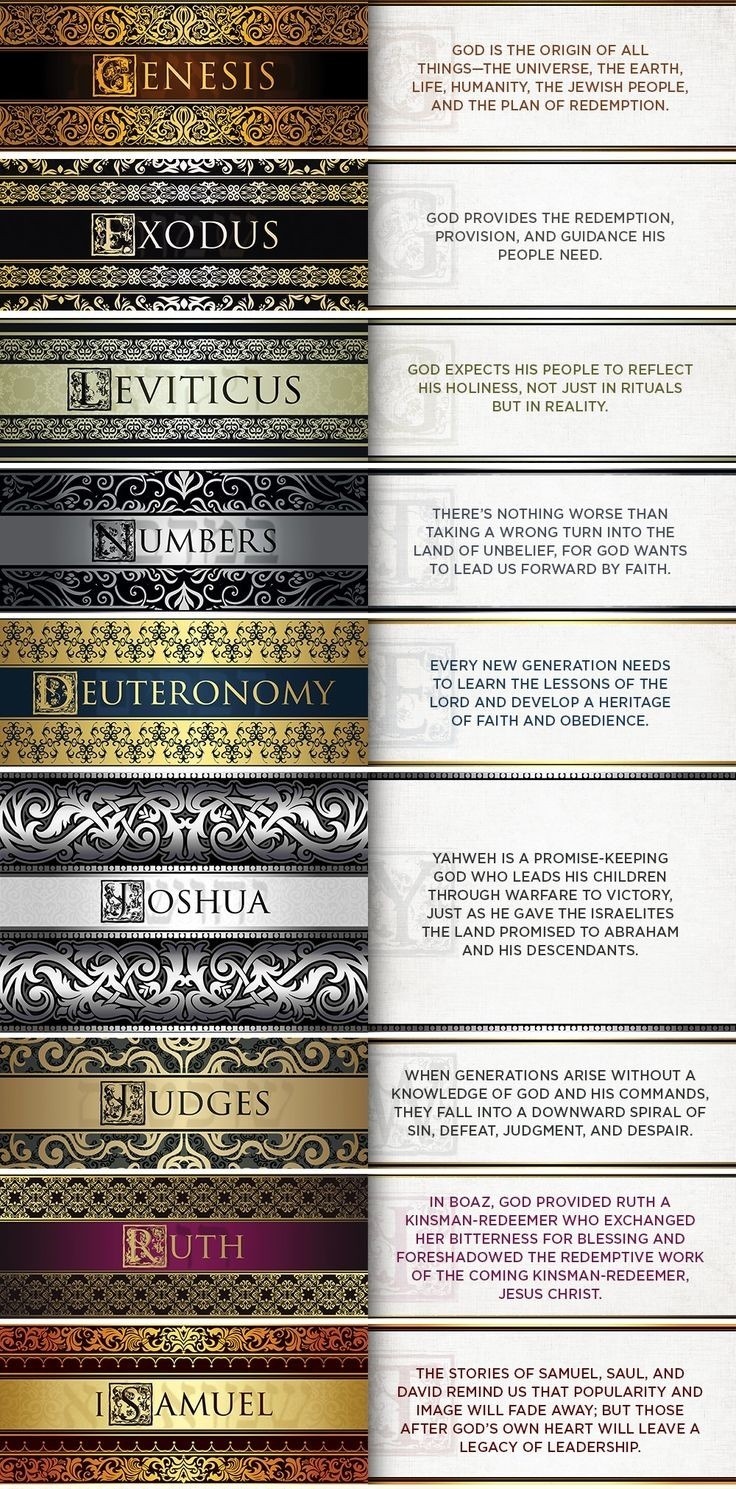

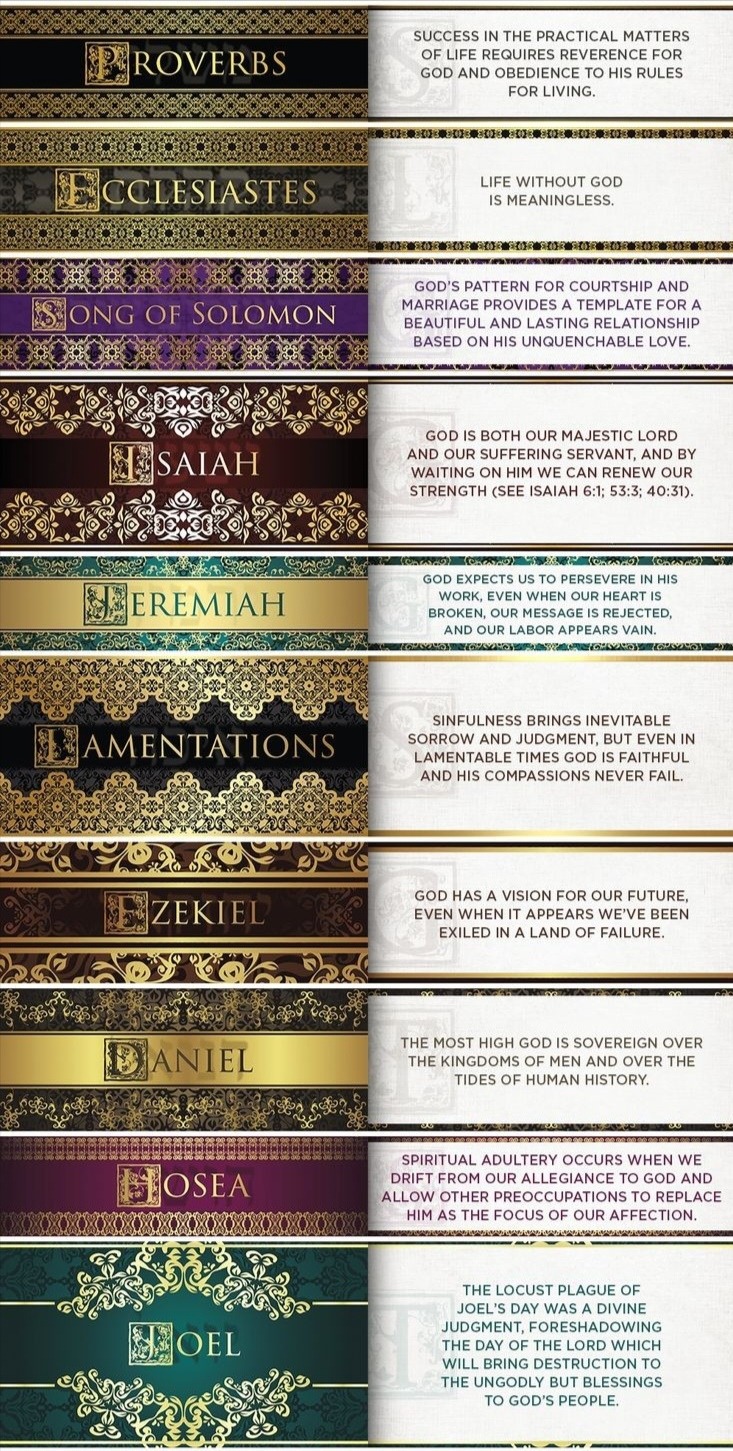
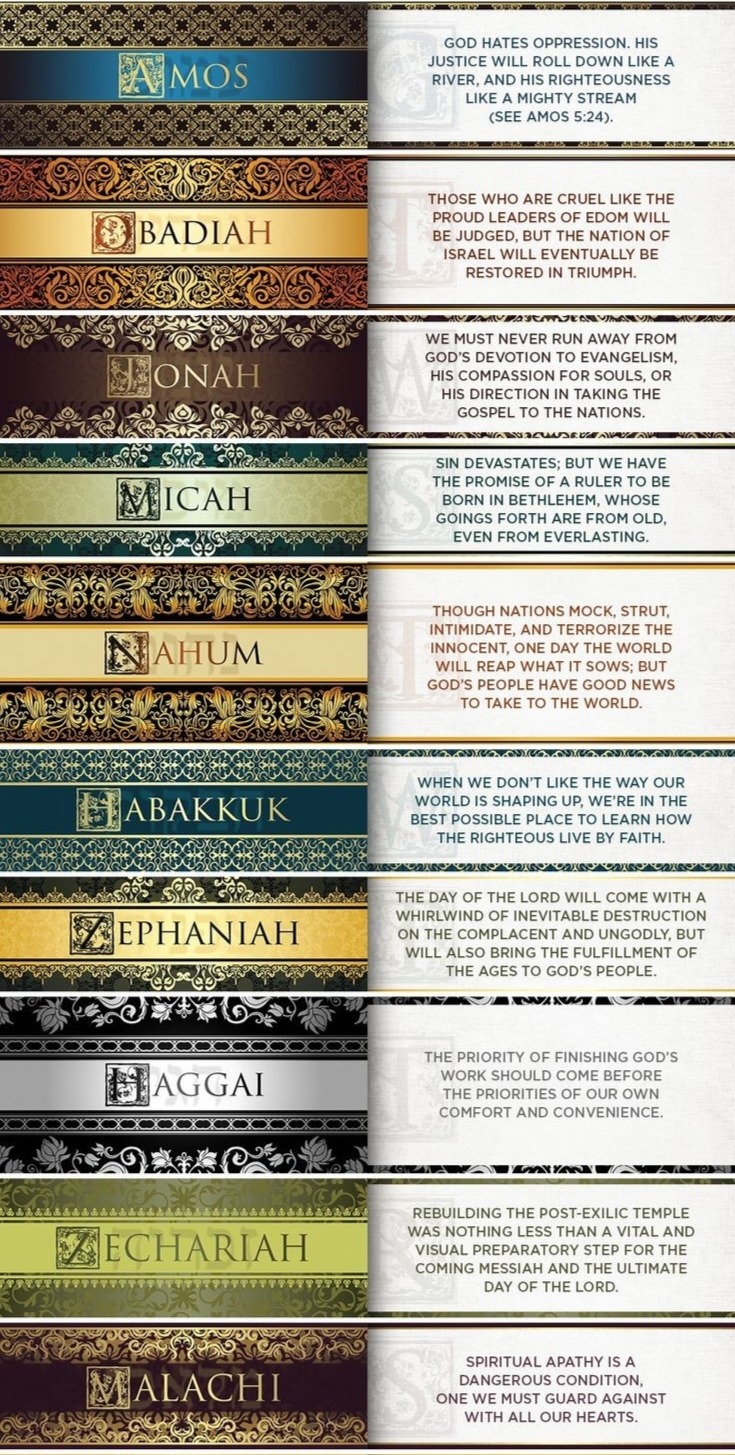
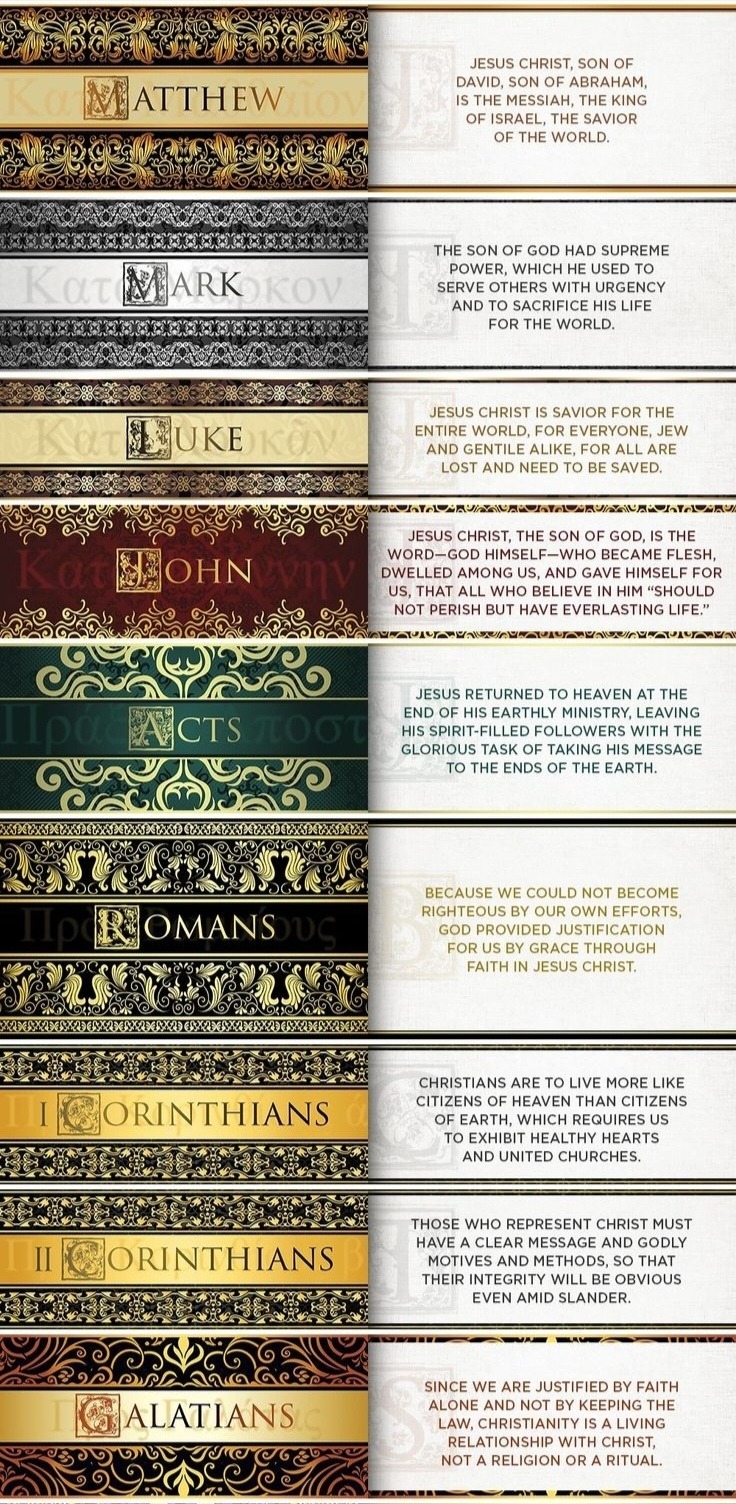
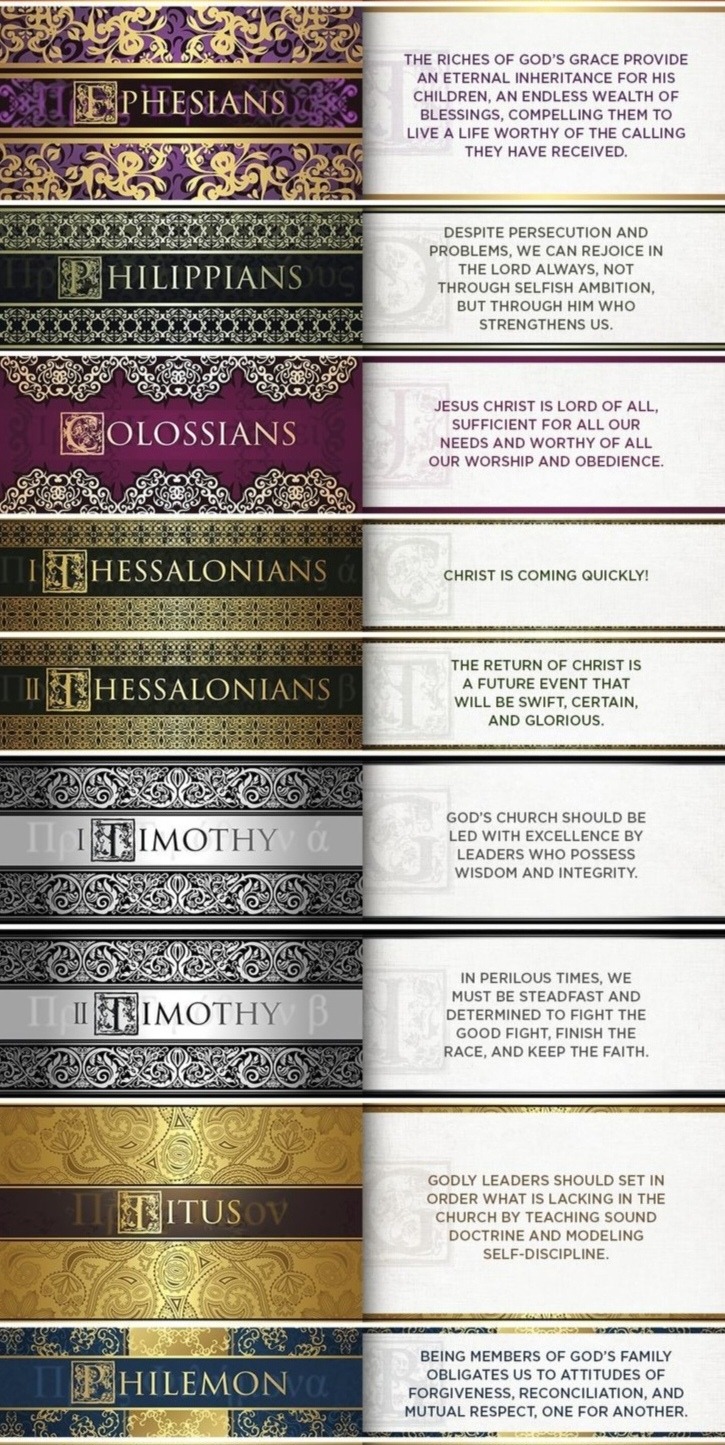

#Holy Bible#God#Jesus Christ#Holy Spirit#Christianity#Christian#Christians#Bible#bible study#bible reading#scripture#biblical scripture#christian blog#chtistian community#old testament#new testament#the bible#books#Word of God#faith in Jesus#faith#faith in God#books and libraries#catholicism#theology#roman catholic#bible quotes#christian faith#booklr#religion
888 notes
·
View notes
Text
Finally, be strengthened by the Lord and by his vast strength. Put on the full armor of God so that you can stand against the schemes of the devil. For our struggle is not against flesh and blood, but against the rulers, against the authorities, against the cosmic powers of this darkness, against evil, spiritual forces in the heavens. For this reason take up the full armor of God, so that you may be able to resist in the evil day, and having prepared everything, to take your stand. Stand, therefore, with truth like a belt around your waist, righteousness like armor on your chest, and your feet sandaled with readiness for the gospel of peace. In every situation take up the shield of faith with which you can extinguish all the flaming arrows of the evil one. Take the helmet of salvation and the sword of the Spirit — which is the word of God. Pray at all times in the Spirit with every prayer and request, and stay alert with all perseverance and intercession for all the saints.
Ephesians 6:10-18
#christianity#full armor of god#ephesians#bible verse#scripture#christian#bible#theology#religion#new testament
106 notes
·
View notes
Text
Yet you do not know what tomorrow will bring.
What is your life? For you are a mist that appears for a little time and then vanishes.
- The book of James 4:14
#the bible#wisdom#verse#religion#theology#bible verse#the book of james#new testament#existentialism
106 notes
·
View notes
Text
For the sake of not filling up op's activity, I'll post my response here. I'm responding to this post here. And boyyyyyyyyyy is there a lot to unpack there. That said (in case op reads this) I would like first and foremost to thank you for being (moderately) reasonable and respectful. Even tho you did overgeneralize quite a bit (which is a logical fallacy) and make a few assumptions, you didn't shout expletives or call me a "cultist p*do" so I'll thank you for that.
Two more things before I start:
Never. Read. A. Bible. Verse. You take something out of context and you can justify any thing. The Scriptures (because I think "Bible" is a misleading term) are literature and have intense literary design. You can't read things out of context. If you read the Iliad out of context you could think it's about numerous things: how Helen's a s**t (even tho Homer never says that), how stealing women from the men who've enslaved them is wrong (yikes), how we should all burn down cities, how war is dangerous, how war is good, how glory is the best, how Achilles is the worst, how Achilles is the best, how being a real man means killing people in a fit or grief and rage. But the Iliad is actually about the destructive power of rage. Which you only know if you read it correctly. Same with the Scriptures.
It's Ancient Jewish Meditation Literature. And you need to know what those 4 words means because otherwise you will be reading the bible entirely wrong. It's Ancient (i.e. written FOR us but not TO us). It's Jewish (written in Hebrew or by Aramaic/Greek writers thinking in Hebrew; written in a distinctive Near Eastern Style). It's for Meditation (from a word meaning "too mutter". You are to meditate or mutter under your breath the Scriptures day and night for a lifetime). And it's literature (it's art. Divinely inspired art. But art nonetheless. There is an overarching narrative, symbolic key, theme and goal).
(EDIT: Somehow I forgot this last one). Everything EVERYTHING connects BACK to the first 3 chapters of Genesis and FORWARD to the Messiah.
Now. Let's begin.
#the bible#faith#jesus christ#bible#jesus#christianity#christian#keep the faith#scripture#new testament#bible scripture#theology#religion#1 corinthians#read the bible#god is with us#study the bible#bible verse#bible quote#bible study#bible quotes#christian faith#faith in jesus#christian living#the bible project
16 notes
·
View notes
Text
Thoughts on a particular brand of Christian interpretation of the Bible that grooms them to support authoritarianism…
(Disclaimer: I am not an expert please don’t use me as your only source on this topic)
in my experience most Christians have an extremely hyper-literal interpretation of the Bible that I don’t necessarily agree with, particularly not when combined with the doctrine that the Bible is completely 100% inerrant and infallible and is the absolute highest authority and is the one and only completely true word of God in a very strict literal sense.
It’s a very brutally honest “facts don’t care about your feelings” way to view God and the violence of the Old Testament.
This means that most Christians really DO believe that all of the rape, slavery, war, genocide, etc. in the Bible is totally 100% genuinely perfectly fine with God and that that must be what God himself actually wants to this day in a modern context as well!
Your personal morals be damned. Your feelings about all of this are irrelevant because it is what the book says. Most Christians really believe that if you want to identity as a Christian or a follower of Jesus in any way, you must accept and be perfectly okay with all of the bad things in the Old Testament as well. It’s all or nothing, take it or leave it. You can’t pick and choose. Facts don’t care about your feelings. This is what it means to be a real Christian whether you like it or not.
If you don’t like hearing any of that, or interpret the Bible differently, you clearly disagree with God himself about rape, slavery, homophobia, and genocide and that is all your fault. If you’ve got a problem with God then that’s on you. Surely God believes that you are wrong about these things and you are the problem. Do you think you are smarter than God???? Who are you to complain and question?
Christians are used to hearing these bad things and putting aside their own feelings and basic morals for the sake of the truth (or what they believe is true whether they like it or not 🤷🏼♀️). They are used to doing this for the sake of respecting tradition and authority and thinking their emotions and ethical philosophy doesn’t matter when there is a higher authority.
Just keep in mind that this is how most conservative Christians view both the Bible AND the U.S. Constitution! 😳! They are authoritative texts that can’t and shouldn’t be changed and to have an ethical philosophy that is different from the men who wrote these texts is an attack on the abstract concept of truth and authority itself.
This is why they are primed for authoritarianism. They think that having a different understanding of the role of these texts and how to interpret them means you think you are smarter or better than the the founding fathers (in the case of the constitution) and of God himself (in the case of the Bible).
Obviously not ALL Christians necessarily think this way I’m just cautioning against this mentality of having to accept terrible things in the name of truth and authority.
#Christian#Christianity#the new evangelicals#religion#politics#take it or leave it#love it or leave it#facts don't care about your feelings#hermeneutics#biblical hermeneutics#conservativism#fundamentalism#evangelicalism#u.s. constitution#enlightenment#political#authoritarianism#progressive christianity#progressive Christian#affirming christian#long reads#long post#old testament#moral philosophy#ethics#ethical philosophy#church hurt#absolute truth#theology#not all Christians
3 notes
·
View notes
Text
Perhaps Paul was committed to the idea that covenantal circumcision of necessity could occur only on the eighth day of the male child's life (see Phil 3.5), a position that would limit it specifically to Jews. He would have on his side the Greek text of Genesis 17.14: "And the uncircumcised male, who shall not be circumcised in the flesh of his foreskin on the eighth day, that soul shall be cut off from his people, for he has broken my covenant" (LXX; cf. Jub 15.25-26). Lacking this phrase "on the eighth day," the Masoretic text of this verse opens up the possibility of circumcision at other times and, thus, of circumcision as a rite of entry of an adult non-Jew into Israel....
Allied to the more stringent, genealogically restrictive view -- and it must be said, to a minority view -- Paul according to this construction holds that circumcision was of no value for the adult male gentile, whether Christ-following or not. Proselyte circumcision would not bring him into Israel's covenant -- just, indeed, as Ishmael's circumcision at age thirteen did not bring him into Israel's covenant (Gal 4.21-31; Rom 9.7). "Circumcision benefits, if you keep the Law. But if you a transgressor of the Law, your circumcision has become foreskin" (Rom 2.25). When Paul speaks this way in Romans, he speaks to a Judaizing gentile, and has the law of eight-day circumcision specifically in mind. The Judaizing gentile -- clearly older than eight days -- who subjects himself to circumcision accordingly transgresses the "law of circumcision" even as he tries to honor it, precisely because he is more than eight days old; hor him, then, circumcision still counts as uncircumcision. His circumcision notwithstanding, the pagan is still a pagan, still outside the covenant of Abraham, Isaac, and Jacob; still trapped, accordingly, in his servitude to the flesh, to sin, and to death (Rom 7); still enslaved to the stoicheia of the universe (Gal 4.9-10). The only way for the gentile to share in the blessing promised to Abraham, Paul urges, is through Christ, thus through spirit; not through flesh, thus not through circumcision.
- Paula Fredriksen Paul: The Pagans' Apostle pp 129-130
8 notes
·
View notes
Text
By Faith: Part 3
Hebrews 11.32-40
By faith…these folks did some incredible things. Faith that gave them the ability to act in confidence, trusting God, “seeing” beyond their circumstances, and so do and accomplish what might otherwise seem unexplainable and even impossible.
Important to note…it was God who acted. These folks just trusted that God would do what He said He would do. I think sometimes we confuse…
View On WordPress
#Bible#biblical worldview#discipleship#Faith#Hebrews#Hebrews 11#Hebrews 11.32-40#hope#Jesus#live and love like Jesus#love#New Testament#Paul#practical theology#Religion and spirituality#Torah Road
3 notes
·
View notes
Text
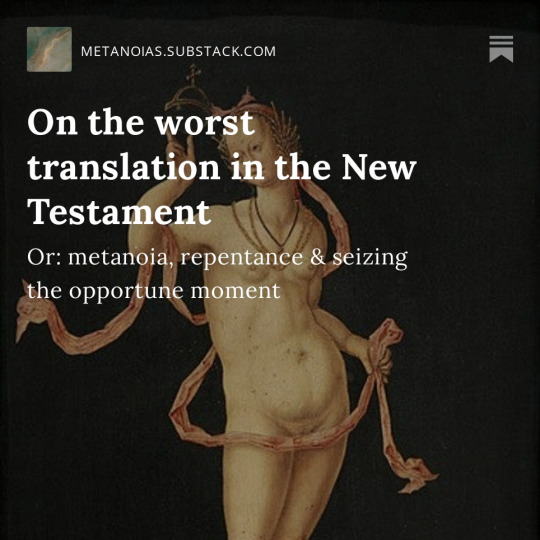
What is metanoia, why it may be the most mis-translated term in the New Testament, and what are the implications for Christian theology? (Plus: What does the Ancient Greek god of opportune moments have to do with it all?) Find the answers here.
#metanoia#new testament#translation#greek mythology#philosophy#greek philosophy#christianity#christian theology#repentance#repent#fortuna#kairos#greek language#ancient history#ancient greece#greece
140 notes
·
View notes
Text

Never forget to love. 🧡
#generational healing#healthy boundaries#you are loved#blogger#poetry#yahweh#healingjourney#words of affirmation#positive reinforcement#book#new testament#faith in jesus#pray without ceasing#heart posture#hope#book of john#love#theology#healing#relational intelligence#relationships quotes#relationship goals#love is
2 notes
·
View notes
Text
Today, the Second Day of Christmas, the Church remembers St. Stephen, proto-Deacon and proto-Martyr.
Ora pro nobis.
Stephen (Greek: Στέφανος Stéphanos, meaning "wreath, crown" and by extension "reward, honor", often given as a title rather than as a name, Hebrew: סטפנוס הקדוש), (c. AD 5 – c. AD 34) traditionally venerated as the protomartyr or first martyr of Christianity, was according to the Acts of the Apostles a deacon in the early church at Jerusalem who aroused the enmity of members of various synagogues by his teachings. Accused of blasphemy, at his trial, he made a long speech denouncing the Jewish authorities who were sitting in judgment on him and was then stoned to death. His martyrdom was witnessed by Saul of Tarsus, a Pharisee who would later become a follower of Jesus and known as Paul the Apostle.
The only primary source for information about Stephen is the New Testament book of the Acts of the Apostles. Stephen is mentioned in Acts 6 as one of the Greek-speaking Hellenistic Jews selected to participate in a fairer distribution of welfare to the Greek-speaking widows.
Saint Stephen is first mentioned in Acts of the Apostles as one of seven deacons appointed by the Apostles to distribute food and charitable aid to poorer members of the community in the early church. According to Orthodox belief, he was the eldest and is therefore called "archdeacon". As another deacon, Nicholas of Antioch, is specifically stated to have been a convert to Judaism, it may be assumed that Stephen was born Jewish, but nothing more is known about his previous life. The reason for the appointment of the deacons is stated to have been dissatisfaction among Hellenistic (that is, Greek-influenced and Greek-speaking) Jews that their widows were being slighted in preference to Hebraic ones in the daily distribution of food. Since the name "Stephanos" is Greek, it has been assumed that he was one of these Hellenistic Jews. Stephen is stated to have been full of faith and the Holy Spirit and to have performed miracles among the people.
It seems to have been among synagogues of Hellenistic Jews that he performed his teachings and "signs and wonders" since it is said that he aroused the opposition of the "Synagogue of the Freedmen", and "of the Cyrenians, and of the Alexandrians, and of them that were of Cilicia and Asia" (Acts 6:9). Members of these synagogues had challenged Stephen's teachings, but Stephen had bested them in debate. Furious at this humiliation, they suborned false testimony that Stephen had preached blasphemy against Moses and God. They dragged him to appear before the Sanhedrin, the supreme legal court of Jewish elders, accusing him of preaching against the Temple and the Mosaic Law.[Acts 6:9–14] Stephen is said to have been unperturbed, his face looking like "that of an angel"
In a long speech to the Sanhedrin comprising almost the whole of Acts Chapter 7, Stephen presents his view of the history of Israel. The God of glory, he says, appeared to Abraham in Mesopotamia, thus establishing at the beginning of the speech one of its major themes, that God does not dwell only in one particular building (meaning the Temple). Stephen recounts the stories of the patriarchs in some depth, and goes into even more detail in the case of Moses. God appeared to Moses in the burning bush [Acts 7:30–32], and inspired Moses to lead his people out of Egypt. Nevertheless, the Israelites turned to other gods [Acts 7:39–43]. This establishes the second main theme of Stephen's speech, Israel's disobedience to God. Stephen faced two accusations: that he had declared that Jesus would destroy the Temple in Jerusalem and that he had changed the customs of Moses.
Benedict XVI stated that St. Stephen appealed to the Jewish scriptures to prove how the laws of Moses were not subverted by Jesus but, instead, were being fulfilled. Stephen denounces his listeners as "stiff-necked" people who, just as their ancestors had done, resist the Holy Spirit. "Was there ever a prophet your ancestors did not persecute? They even killed those who predicted the coming of the Righteous One. And now you have betrayed and murdered him."[Acts 7:51–53]
Thus castigated, the account is that the crowd could contain their anger no longer. However, Stephen looked up and cried, "Look! I see heaven open and the Son of Man standing on the right hand of God!" He said that the recently executed Jesus was standing by the side of God. [Acts 7:54] According to Orthodox belief, the "Sanhedrin shouted and covered their ears, and rushed at him. They dragged him out of the city and stoned him, but the holy martyr prayed for his murderers." The people from the crowd, who threw the first stones, laid their coats down so as to be able to do this, at the feet of a "young man named Saul". However, according to the "Aramaic Bible in Plain English" and the "Weymouth New Testament" (Acts 22:20) through , St. Paul, earlier known as Saul admits he was not only standing by, he was holding the garments of those stoning St. Stephen. This has significance. The possible reason for this may be that many of the members of the Sanhedrin were wealthy. (See Luke 18:9-14) Some, who may have been wearing expensive garments may have been hesitant to throw or place them on the ground. Saul's willingness to hold the garments of those stoning Stephen might signify that he considered it an honor to do so at the time. Having held the garments, rather than just watching over them, would have made Saul much more of an accomplice. This could have added greatly to St. Paul's sense of guilt later on and illuminate why he considered himself to be the worst sinner of all. "Here is a trustworthy saying that deserves full acceptance: Christ Jesus came into the world to save sinners--of whom I am the worst." 1 Timothy 1:15 (New International Version) Approving of, and assisting in, the killing of a disciple that Christ himself had chosen, was an unforgettable act, which St. Paul regretted for the rest of his life. "But for that very reason I was shown mercy so that in me, the worst of sinners, Christ Jesus might display his immense patience as an example for those who would believe in him and receive eternal life." 1 Timothy 1:16
Stephen prayed that the Lord would receive his spirit and his killers be forgiven, sank to his knees, and "fell asleep" [Acts 7:58–60]. Saul, a witness to the stoning, "approved of their killing him".[Acts 8:1] In the aftermath of Stephen's death, the remaining disciples fled to distant lands, many to Antioch.
We give you thanks, O Lord of glory, for the example of the first martyr Stephen, who looked up to heaven and prayed for his persecutors to your Son Jesus Christ, who stands at your right hand; where he lives and reigns with you and the Holy Spirit, one God, in glory everlasting. Amen.

#father troy beecham#christianity#jesus#saints#god#salvation#peace#martyrs#faith#early church#theology#new testament#holy trinity#christmas#second temple jewish theology
13 notes
·
View notes
Text
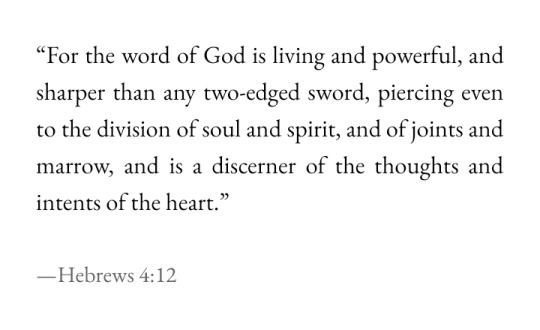
#bible verse#Hebrews#God#Christianity#holy bible#Christian#christians#Christian faith#faith#faith in God#faith in Jesus#Jesus#Christ#christian blog#bible#bible quotes#bible study#bible reading#bible scripture#bible verse of the day#bible quote#scripture#new testament#holy spirit#Jesus Christ#nkjv#biblia#theology#christian living#christian encouragement
277 notes
·
View notes
Text
Dear friends, don't be surprised when the fiery ordeal comes among you to test you as if something unusual were happening to you. Instead, rejoice as you share in the sufferings of Christ, so that you may also rejoice with great joy when His glory is revealed. If you are ridiculed for the name of Christ, you are blessed, because the Spirit of glory and of God rests on you.
1 Peter 4:12-14
88 notes
·
View notes
Text
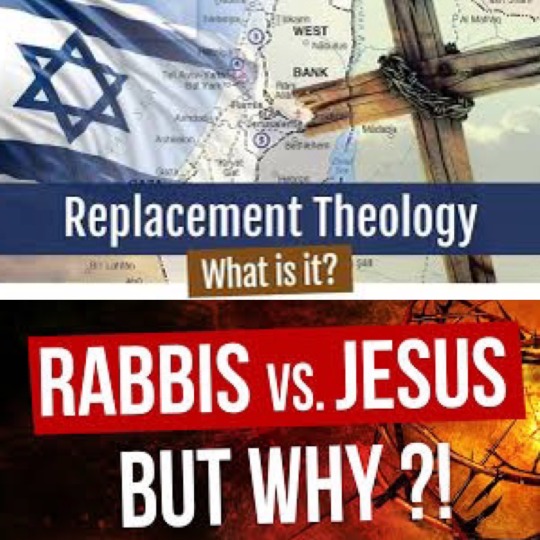
Israelology Versus Replacement Theology: Is the Bible about Israel or Jesus?
Eli Kittim
If Jesus is the Messianic fulfillment of the Hebrew Bible, then the Old Testament is essentially Christocentric (not Jewishcentric) and the New Testament is not talking about two peoples (the Jews & the church) but rather one: the elect (cf. Eph. 2:19-20), which is to say that the overarching theme of the Old Testament is not about a race but about a person: the Messiah!
If in fact there are 2 peoples with 2 different sets of standards (law & grace) by which they’re saved, then that would invalidate Christ’s atonement, as would the rebuilding of the third Jewish temple, which would necessitate the reinstituting of animal sacrifices. However, the Bible is not about ethnicity, racism, or nationalism. In Romans 2:28-29 (NASB), Paul redefines what the term Jew means in scripture:
For he is not a Jew who is one outwardly,
nor is circumcision that which is outward in
the flesh. But he is a Jew who is one
inwardly; and circumcision is of the heart.
In the Bible, there are not two people of God, but only one: those who are in Christ. At the end of the age, Christ will separate “the sheep from the goats” (Mt. 25.32). In other words, there are only two categories: you are either in Christ or out of Christ! The Bible is Christocentric. It is not ethnocentric. It’s not about a race.
Instead of admitting that they view the Bible as being about their race and not about Christ, the Hebrew Roots Movement dresses it up euphemistically as though the controversy was about the Jews versus the church. But that’s a misnomer. The real controversy is this: they don’t believe that the Bible is about Christ. But they hide that from you! Messianic Jews are often far more Judaic than they let on.
Read the letter to the Hebrews, chapter 9. It’s all about how Christ is greater than the temple sacrifices or the Law of Moses. This is a New Covenant. So why are the Jews holding on to the old one? Hebrews 8:13 declares:
When He [God] said, ‘A new covenant,’ He
has made the first obsolete.
Both Galatians and Romans are authentic Pauline letters. In those letters, Paul says categorically & unequivocally that we are saved by Grace, not by the Law. Paul says in Galatians 2:16:
a person is not justified by works
of the Law but through faith in Christ.
In Galatians 2:21, Paul says:
if righteousness comes through the Law, then
Christ died needlessly.
In Galatians 3:11, Paul repeats the justification of faith teaching:
that no one is justified by the Law before
God is evident; for, ‘the righteous one will
live by faith.’
It’s also found in many other places, including Romans 3:20:
by the works of the Law none of mankind
will be justified in His sight.
It doesn’t get any clearer than that. We are not to observe the law. We are saved by faith in Jesus Christ. According to Acts 4:12:
there is salvation in no one else [except
Jesus Christ]; for there is no other name
under heaven that has been given among
mankind by which we must be saved.
Yahweh is never once mentioned in the New Testament. Moreover, Galatians 3:7 says that we are the sons of Abraham by faith (not by race):
recognize that it is those who are of faith
who are sons of Abraham.
Ephesians 2:12-13 says that through “the blood of Christ” the elect are now part of God’s family. There’s only one plan, one family, one salvation, and one Lord, not 2 different salvation plans, or 2 peoples. It’s not that we have replaced Israel but that we have been brought into one family through Jesus’ atonement (the new covenant) which was prophesied in Jeremiah 31.31.
Incidentally, the history of replacement theology doesn’t go back to the dispensationalism of the 1800s, but rather to the early church. In Jer. 3:8, God gave Israel an official certificate of divorce. In Mt. 21:43, Jesus promised that the kingdom of God will be taken away from the Jews and given to another nation. Justin Martyr (100-165 AD) concurred that God’s covenant with Israel was annulled and that the Jews had been replaced by the Gentiles. Origen’s (185-253 AD) view was along the same lines. Irenaeus (ca. 130-202 AD) also proclaimed that God disinherited the Jews from his grace. Tertullian (ca. 155-220 AD) also held that the Jews had been rejected by God. Similarly, Eusebius (ca. 265-339 AD) held that the promises of Scripture were given to the Gentiles because only the Church was the “true Israel.” This was also the view of St. Augustine (354-430 AD). So, this view didn’t start in the 19th century. It was there from the beginning.
The covenant of the seed (in Genesis 12) is a reference to Christ (see Gal. 3:16). Notice that Abraham is the “father of many nations” (Gen. 17:5), not just one. So the covenant with Abraham and his descendants (Gen. 17:8) is with multiple nations, not just one! And all these are part of the covenant through Abraham’s seed, who is Christ! That’s why Isaiah 61:9 explicitly refers to God’s posterity as the people of the Gentiles:
their offspring will be known among the
nations [Gentiles], And their descendants in
the midst of the peoples. All who see them
will recognize them because they are the
offspring whom the Lord has blessed.
“It is not the children of the flesh … but the children of the promise [who] are regarded as descendants [of Israel]” (Rom 9:6-8). Here’s further proof that the language which was once used for Israel is now used to address the church (cf. Gal. 6:16). In contradistinction to those who don’t believe in Christ, 1 Peter 2:9 is addressing the church who does believe in Christ, saying:
But you are a chosen people, a royal
priesthood, a holy nation, a people for
God’s own possession.
In Colossians 1:26, “the mystery which had been hidden from the past ages and generations, but now has been revealed to His saints” is that the Gentiles are co-inheritors with Israel (cf. Gal 3:28). Ephesians 3:6 says:
This mystery is that through the gospel the
Gentiles are heirs together with Israel,
members together of one body, and sharers
together in the promise in Christ Jesus.
The real controversy about replacement theology is this: is the Bible about Judaism or Jesus? Jews argue that the Bible is not about Christ. Their Dual-covenant theology holds that the Old Covenant remains valid for Jews whereas the New Covenant is only applicable to gentiles.
Bottom line, the Bible is not about a nation or a race. It’s about a person: the God-incarnate Messiah. Those who believe in Christ think that the Bible is about Christ. Those who don’t really believe in Christ think that the Bible is about the nation of Israel. It’s that simple.
What is the argument about? It’s really about whether we pledge allegiance to Moses or to Jesus.
Has Christ been divided?
(1 Corinthians 1:13).
#christian supersessionism#Bible#new covenant#Moses#theology#OldCovenant#Torah#ReplacementTheology#judaism#FulfillmentTheology#covenant theology#dispensationalism#EliKittim#HebrewRootsMovement#mosaic law#the little book of revelation#ΕλιΚιτίμ#Israelology#hebrew bible#new testament#jesus christ#ΤοΜικροΒιβλιοΤηςΑποκαλυψης#old testament#AtonementTheology#twocovenanttheology#messiah#JewsforJesus#church fathers#Dualcovenant#ApostolicFathers
4 notes
·
View notes
Text
Thinking: The Greek Scriptures is a bad way to refer to the last fourth of the Christian Scriptures.
#can't say the new testament#can't say the greek scriptures#what the heck am i supposed to call it!!#something to meditate on#christianity#jesus#bible#faith#faith in jesus#bible scripture#keep the faith#jesus christ#christian#christian theology#theology#progressive christian#progressive christianity#christblr#tanakh#new testament
4 notes
·
View notes
Text
seeing pascal’s wager discourse on the dash so I wanted to say that like a) pascal’s wager is probably the least interesting thing to come out of pascal and b) it’s been a while since i read him or secondary lit on him but it’s my feeling that of course the Wager falls flat when you read it outside of the context: his grappling with faith and doubt and trying and in many ways failing to cope with the view (which is one i tend to hold) that belief in god cannot really be reached by rational argument. in this way it’s not really an argument in the same way that anselm or godel’s ontological arguments are.
#i think christians tend to fall the most flat for me when they actually do try to show beyond a shadow of a doubt that god exists#if your theology is such that the doubt that exists as the complement part of faith cannot even be approached let alone reconciled#then you have a weak theology and a backwards concept of what it means to hold faith#the whole new testament is literally the people who were closest to jesus and saw the miracles Not Getting It#or just refusing to believe#that's why pascal and augustine and martin luther are actually interesting because that's at the core of their problems
2 notes
·
View notes